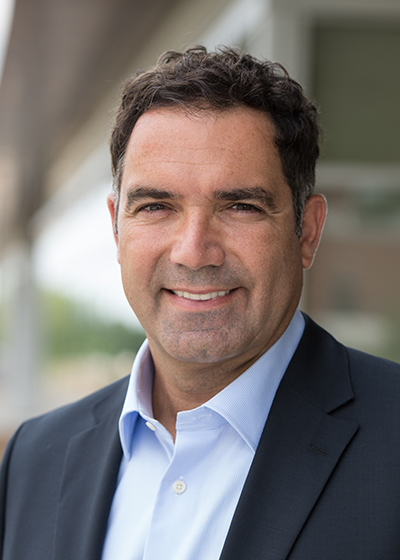June 26, 2023 - The U.S. Department of Energy has awarded $3.75 million to UCI engineers for research in clean energy. The award is one of 22 issued by the DOE to advance critical technologies for producing, storing, deploying and utilizing hydrogen in support of President Biden's goal of a 100% clean electrical grid by 2035 and net-zero carbon emissions by 2050.
Vojislav Stamenkovic, UCI professor of chemical and biomolecular engineering in the Samueli School and director of the Horiba Institute for Mobility and Connectivity, attended the funding award announcement at the Annual Merit Review of the DOE's Hydrogen Program in Washington, D.C. in early June.
"Hydrogen technologies are the prevailing choice to effectively address decarbonization of the energy sector, electrify transportation and modernize the electric grid," said Stamenkovic, "nevertheless, to widely use hydrogen as a fuel, further improvements in the technology are essential."
Stamenkovic is leading the UCI team that includes Iryna Zenyuk, associate professor, and Plamen Atanassov, chancellor's professor. The research aims to connect materials engineered at atomic scale with real-world devices. This would enable the widespread commercialization of hydrogen and fuel cell technology targeting medium- and heavy-duty trucks, which would in turn facilitate the transition toward sustainable zero-emission transportation and diminish dependence on foreign oil.
"UCI has unique capabilities and a long legacy in hydrogen technologies at the system level, which is now expanded toward implementation of fundamental discoveries into electrode structure and design of highly durable low-temperature hydrogen fuel cells," explained Stamenkovic. "Proximity of our research laboratories and the recently established Horiba Institute for Mobility and Connectivity as well as highly complementary expertise among UCI researchers creates critical momentum for research and development in hydrogen technologies at all scales."
The team plans to deliver highly durable and manufacturable fuel cell membrane electrode assemblies with low-platinum group metal cathode catalysts, enhanced mass activity at high operational potentials, improved performance and extended operational lifetime, all at a reduced cost for heavy duty trucks. The results would allow CO2 emission-free transportation and eliminate air pollution from truck emissions, especially in underprivileged communities that are currently heavily impacted.
The UCI-led team also includes researchers from Drexel University, Cabot Corporation and RTC Bosch North America. The award comes from the DOE's Hydrogen and Fuel Cell Technologies Office, which is within the Office of Energy Efficiency & Renewable Energy. The three year project will start in October 2023.
Vojislav Stamenkovic, UCI professor of chemical and biomolecular engineering in the Samueli School and director of the Horiba Institute for Mobility and Connectivity, attended the funding award announcement at the Annual Merit Review of the DOE's Hydrogen Program in Washington, D.C. in early June.
"Hydrogen technologies are the prevailing choice to effectively address decarbonization of the energy sector, electrify transportation and modernize the electric grid," said Stamenkovic, "nevertheless, to widely use hydrogen as a fuel, further improvements in the technology are essential."
Stamenkovic is leading the UCI team that includes Iryna Zenyuk, associate professor, and Plamen Atanassov, chancellor's professor. The research aims to connect materials engineered at atomic scale with real-world devices. This would enable the widespread commercialization of hydrogen and fuel cell technology targeting medium- and heavy-duty trucks, which would in turn facilitate the transition toward sustainable zero-emission transportation and diminish dependence on foreign oil.
"UCI has unique capabilities and a long legacy in hydrogen technologies at the system level, which is now expanded toward implementation of fundamental discoveries into electrode structure and design of highly durable low-temperature hydrogen fuel cells," explained Stamenkovic. "Proximity of our research laboratories and the recently established Horiba Institute for Mobility and Connectivity as well as highly complementary expertise among UCI researchers creates critical momentum for research and development in hydrogen technologies at all scales."
The team plans to deliver highly durable and manufacturable fuel cell membrane electrode assemblies with low-platinum group metal cathode catalysts, enhanced mass activity at high operational potentials, improved performance and extended operational lifetime, all at a reduced cost for heavy duty trucks. The results would allow CO2 emission-free transportation and eliminate air pollution from truck emissions, especially in underprivileged communities that are currently heavily impacted.
The UCI-led team also includes researchers from Drexel University, Cabot Corporation and RTC Bosch North America. The award comes from the DOE's Hydrogen and Fuel Cell Technologies Office, which is within the Office of Energy Efficiency & Renewable Energy. The three year project will start in October 2023.
